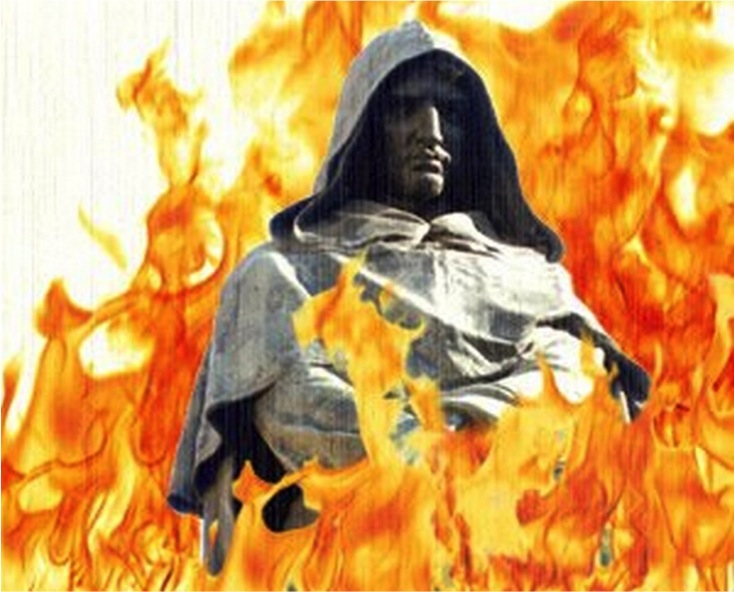
Did You Know? The Visionary Beliefs of Giordano Bruno and the Dark Ages of Science
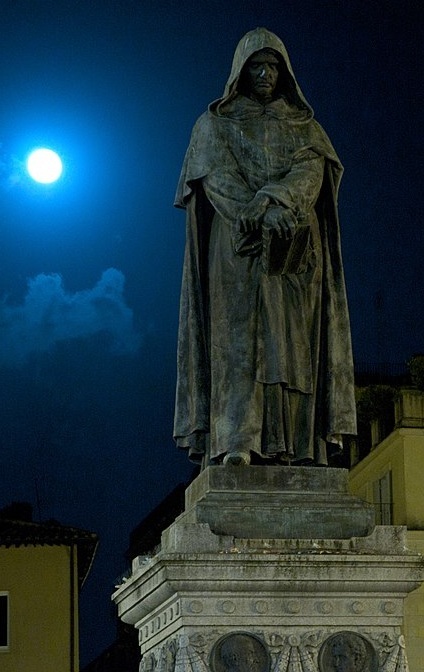
Giordano Bruno, a name that may not be immediately familiar to many, was one of the most daring thinkers of the Renaissance period. His ideas were revolutionary, and in some ways, they still resonate with us today. What’s perhaps most fascinating about Bruno is his belief that intelligent life exists beyond Earth, a notion that would seem commonplace to us now but was heretical during his time. In an era where science, free thought, and alchemy were often viewed with suspicion, Bruno’s ideas led him into direct conflict with the Catholic Church, ultimately resulting in a tragic fate.
A Time of Darkness and Inquisition
To understand the impact of Giordano Bruno’s beliefs, we must first look at the societal and political climate of the time. The Middle Ages, stretching from roughly the 5th to the 15th century, was marked by the dominance of the Catholic Church over nearly every aspect of life science, philosophy, politics, and morality. The Church’s influence was vast and often stifling, as it held the power to dictate what could be studied, discussed, and believed. The Inquisition, established in the 12th century, was a particularly frightening force. It was an institution designed to root out heresy—any belief or teaching that opposed the doctrines of the Church and punish those who deviated from orthodox teachings.
During this period, expressing ideas that challenged the Church’s view of the universe could lead to accusations of heresy. The consequences were severe: imprisonment, torture, and often execution. This oppressive atmosphere created a dangerous environment for thinkers like Bruno, who dared to question the established beliefs.
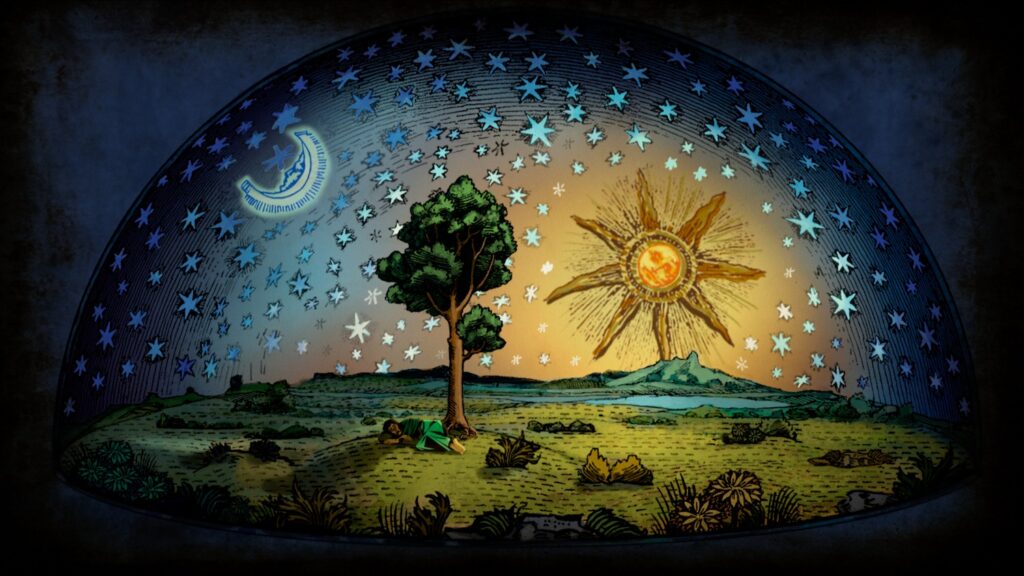
Giordano Bruno’s Revolutionary Ideas
Giordano Bruno was born in 1548 in Nola, Italy, and his philosophical ideas were ahead of their time. He was not only an astrologer, mathematician, and philosopher, but also a visionary who expanded the limits of human thought. Bruno is perhaps best known for his assertion that the universe was infinite, containing countless worlds and stars, each potentially home to intelligent life.
At a time when most people believed in a geocentric universe (where Earth was the center), Bruno argued that the universe was heliocentric (with the Sun at the center), and that it was far larger and more complex than anyone had imagined.
Bruno’s thoughts went beyond just the idea of a larger universe; he proposed that there were countless other worlds, inhabited by beings just as intelligent as humans.This concept of extraterrestrial life was considered radical, even blasphemous, in an era when the Church taught that Earth and humanity were central to God’s plan. To suggest the existence of other intelligent life forms contradicted the Church’s teachings about creation and human beings’ special place in the cosmos.
But Bruno wasn’t just interested in the cosmos. His work also delved into the realms of alchemy and free thinking. He promoted the idea that knowledge should be pursued without fear, encouraging a break from rigid dogma. His ideas on the interconnectedness of all things, the infinite nature of the universe, and the potential for other forms of life were, at the time, far more speculative than scientific.
The Significance of Giordano Bruno’s Ideas
A Visionary’s Price: Giordano Bruno’s Martyrdom for His Beliefs
Bruno’s ideas, which seemed radical to the Church, led to his eventual arrest in 1592. He was charged with heresy, blasphemy, and the rejection of Catholic dogma. These charges were based on his denial of key doctrines, such as the Trinity and the nature of Christ. His belief in an infinite universe with multiple worlds inhabited by intelligent beings was seen as a challenge to the Church’s teachings about Earth’s uniqueness.
Bruno was imprisoned, tried, and ultimately condemned by the Roman Catholic Church. Despite several years of imprisonment and torture, he remained resolute in his beliefs, refusing to recant. On the day of his execution, Giordano Bruno is believed to have said:
“Perhaps you, my judges, pronounce this sentence against me with greater fear than I receive it.”
This statement reflects Bruno’s defiance and unwavering belief in his ideas, even in the face of death. It highlights his courage and conviction, suggesting that the judges were more fearful of his ideas and their implications than he was of his own execution.
On February 17, 1600, Giordano Bruno was burned at the stake in the center of Rome, in what is now the bustling Campo de’ Fiori square. His martyrdom sent a powerful message about the dangers of free thought in a time of rigid religious control.
Exploring Giordano Bruno’s Impact on Modern Philosophy
Giordano Bruno’s visionary thoughts not only reshaped the scientific landscape of his time but also laid a foundation for modern philosophical inquiry. His belief in an infinite universe and the possibility of other intelligent life forms continue to challenge and inspire philosophical discussions today.
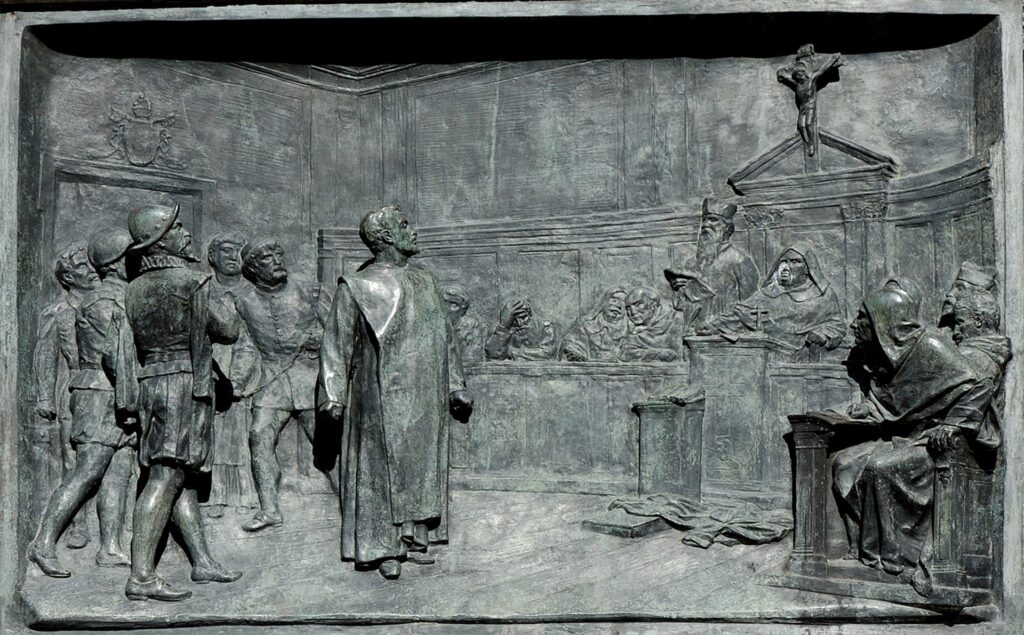
The Legacy of Giordano Bruno
Bruno’s tragic death did not mark the end of his influence. In fact, it solidified his place as a symbol of intellectual freedom and resistance against oppressive systems.
His ideas about the infinite universe and the existence of life beyond Earth laid the groundwork for later scientific advancements. While Copernicus had already proposed the heliocentric model, Bruno pushed that concept further, envisioning an endless universe filled with other worlds. This vision eventually paved the way for the work of scientists like Galileo Galilei and later, even modern-day astronomers who seek to discover planets outside our solar system.
Bruno’s legacy has grown in stature over the centuries. Today, his ideas are recognized as visionary, and his execution is seen as a grim reminder of the dangers of censorship and religious orthodoxy. Giordano Bruno is remembered not just for his cosmological theories, but also for his courage in standing by them in the face of torture and death.
Understanding Giordano Bruno’s Influence on Modern Science
Giordano Bruno’s revolutionary theories not only challenged the religious norms of his time but also laid the foundation for modern scientific thought. His ideas about the cosmos continue to inspire contemporary inquiries into the existence of life beyond Earth, reflecting his lasting impact on both science and philosophy.

The Importance of Free Thought
The story of Giordano Bruno serves as a powerful reminder of the importance of intellectual freedom and the dangers of allowing any institution or authority to stifle the pursuit of knowledge. In today’s world, where new ideas and discoveries are celebrated, it’s hard to imagine a time when speaking out against the established order could result in death. Yet Bruno’s life and death highlight the importance of protecting free thought and the right to challenge accepted beliefs.
It’s fascinating to think that the question of whether we are alone in the universe—something Bruno proposed centuries ago—has now become one of the most profound scientific inquiries of our time. As scientists look to the stars and search for signs of life beyond Earth, we can’t help but remember the man who dared to ask the same question long before modern telescopes and space missions made it possible.
Giordano Bruno’s beliefs about the infinite universe and intelligent life beyond Earth were groundbreaking, and his legacy continues to inspire the quest for knowledge and the pursuit of truth, no matter the cost.
“There are countless suns and countless earths all rotating around their suns in exactly the same way as the seven planets of our system. We see only the suns because they are the largest bodies and are luminous, but their planets remain invisible to us because they are smaller and non-luminous.“
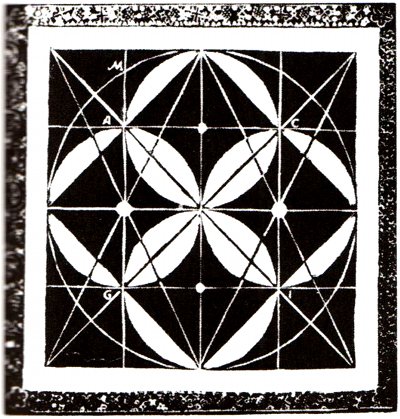
The seals of Giordano Bruno are engravings made by the same artist and published in his works starting from the Prague period. They represent overlapping geometric figures but also real drawings with presumed decorations and letters. Apart from the title of the seals we have no explanation regarding their meaning or their real use. To date many conjectures have been made by various scholars without reaching any definitive conclusion.
